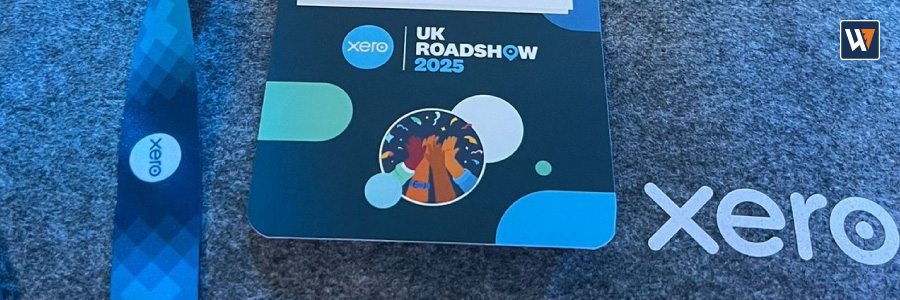Latest HMRC Targets
 23rd February 2025
23rd February 2025
The HMRC “Nudge Unit”, previously called the Behavioural Insights Team, was a department within the Cabinet Office that was tasked with improving government services and saving money by employing a blend of behavioural economics and psychology. An example of this in practice is the so-called “nudge” letters (referred to by HMRC as ‘one-to-many’ letters) HMRC issue on the back of using their vast data collection resources and AI based ‘Connect’ computer system to risk base profile taxpayers with potential incorrect tax compliance. The HMRC Connect system uses this data to generate a list of targeted recipient taxpayers to receive these nudge letter mailshots (approximately one new campaign per month). The content of these letters places the onus on the taxpayer, not HMRC, to review their historic tax returns and correct their tax compliance if appropriate.
During the 2023/24 tax year, ‘nudge’ letters resulted in 6 million taxpayers making/correcting returns and paying an additional £448m in tax.
Recent HMRC ‘Nudge’ campaigns – and the assumed originating data source (in brackets):
- Aug-20: Business who are believed to have incorrectly claimed Coronavirus Job Retention Scheme subsidies (Challenged by HMRC when they believe the relevant staff were actually still working).
- Oct-20: Individuals resident in the UK who had not declared the interest arising on bank accounts held in Indian banks (per data exchanged between UK & Indian tax authorities)
- Jan-22: Individuals who have not declared cryptocurrency gains on their tax returns (based on what digital platforms now report to HMRC).
- Aug-22: Incorrectly declared benefits in kinds (based on comparing disclosures on P11d’s with self-assessment tax returns)
- Nov-22: Persons of significant control who have declared income of below £100,000 or who have not submitted a tax return (based on Companies House PSC registers).
- Jan-23: Offshore corporates that own UK property (per Companies House register of overseas entities)
- Feb-23: Incorrect R&D tax relief claims (perhaps targeted on the large number of amended tax returns submitted by unscrupulous R&D tax agencies)
- Mar-23: Black economy landlords (per property owners on online booking platforms like Vrbo and Airbnb)
- Apr-23: Individuals who have undeclared businesses through online platforms (based on sales records obtained from eBay, Etsy and Facebook)
- Jun-23: UK residents with undeclared offshore assets (per those named in Pandora Papers 2021 documents leak).
- Jun-23: Individuals claiming business asset rollover relief on what appears to be residential property (possibly based on Land Registry information)
- Sep-23: No add back of mortgage interest in rental income computations relating to residential property (probably based on comparing to total interest tax relief cl;aimed elsewhere on tax return)
- Sep-23: Potentially spurious R&D claims made by care homes (based on sector classification).
- Oct-23: Discrepancies in 2021-22 self assessment tax returns re entitlement to retain child benefit (based on comparison of tax return high income child benefit entries with child benefits data sources, if income exceeds £50k).
- Oct-23: Discrepancies in 2021-22 self assessment tax returns re full declaration of benefits in kind (based on comparison with P11d submissions by employers).
- Nov-23: Property owners who have incorporated their business in the tax year 2017/18 but reported no capital gains tax liability on their self-assessment tax return, on the basis that incorporation relief is believed to apply (Based on tax return relief claim).
- Nov-23: UK taxpayers who have used a money service business during 2022/23 to send money abroad or cash cheques, and possibly not declared all income sources on their tax return (Based on money service business data reports).
- Nov-23: Large businesses (individually or part of a group with turnover over £200m) that do not publish their tax strategy on their website (Based presumably on HMRC manually checking up on company websites).
- Dec-23: Querying whether tax deduction claimed for ‘repairs’ against rental income is too high in 2022 tax return (Based on total claimed being high compared to sector average).
- Dec-23: Reminding online traders to account for VAT before deduction of payment processor fees. Requested to check for last 4 years.
- Jan-24: Asking landlords whether they have fully disclosed income from short term property letting (Presumably prompted by comparing client lists obtained from Airbnb with ‘furnished holiday letting’ income entries on tax returns).
- Feb-24: Checking for full disclosure of dividends received (inferred distributions) by business owners (mailshot targets identified by HMRC comparing Profit and Loss Account reserve movement in annual company accounts, company profits declared for corporation tax and self assessment dividend disclosures). As the tax free dividend allowances is reducing year on year, HMRC believe under disclosure of private company dividends is a black hole of under collected income tax.
- Feb-24: Suggesting to taxpayers that they sold shares in company ‘XYZ’ and should have made capital gains tax disclosures (originating data source currently unknown).
- Feb-24: Asking companies who are part of a group whether AIA (capital allowances) have been claimed within apportioned maximums.
- Jun-24: targeting electronic till systems that hide or reduce the value of individual transactions on a business’s sales records (electronic sale suppression), whilst providing what appears to be a credible and compliant audit trail (source of mailshot recipients unknown).
- Jun-24: targeting individual taxpayers who have disclosed a 2022-23 capital gain on selling their business and who may have claimed more than their £1m lifetime maximum entitlement to the 10% capital gains tax business asset disposal relief (source of mailshot derived from looking at previous tax return claims for BADR).
- Jul-24: Writing to individuals who are disclosed as persons with significant control of a particular company and checking that they have fully declared all dividends and gains on a personal tax return (source of mailshot derived from Companies House).
- Jul-24: Contacting construction industry scheme (CIS) contractors, to prompt them to make correct CIS tax deductions by verifying the CIS tax status of their subcontractors and ensuring they apply the correct CIS tax deductions on all payments made (source of recipient list is unknown).
- Aug-24: Contacting individuals (mainly pensioners) who have taxable income but who are not in Self Assessment or for whom they cannot automatically deduct the tax owed via a PAYE tax code. They will be instructed to pay what they owe using Simple Assessment (recipient list based on compiling income details received from Department for Work and Pensions, banks and building societies).
- Aug-24: HMRC Wealth Unit will be sending letters to taxpayers who they believe have disposed of crypto-assets but not declared any resulting chargeable gains or income (source of recipient list is unknown).
- Aug-24: Contacting taxpayer agents in connection with childcare benefit values on 2022/23 P11D/P14 and High Income Child Benefit Charge (source of recipient list is unknown).
- Aug-24: HMRC’s Wealth Unit are writing to taxpayers verifying the validity of a claim for investors’ relief in 2022–23 tax returns (based on previous tax return disclosures).
- Aug-24: Animal breeders have been contacted to seek undeclared income, particularly from increased volumes of dog and cat breeding sales during the pandemic (target recipients sourced from pet insurers, the RSPCA, pet-selling websites and social media).
- Aug-24: HMRC’s Wealthy Unit are sending one to many letters to individuals earning more than £200k a year who have not registered for self-assessment, or have received a notice to file a return for 2021–22 but did not submit one and those who have never been registered for self-assessment (target recipients presumably sourced from 2021-22 P60 data, etc).
- Aug-24: HMRC is writing to contractors, asking them to regularly verify the CIS status of its subcontractors (target recipients based on subcontractors used in the previous 2 years, but not entered on a CIS return for the current year).
- Sep-24: HMRC’s Wealthy Unit are sending one to many letters to non domiciled individuals who HMRC believe should have paid a remittance basis charge for the 2022-23 tax year (source of target recipients unknown).
- Oct-24: Tax agents with 5 or more clients who have not yet filed a 2022-23 tax return (due 31 January 2024) are being written to.
- Nov-24: HMRC are writing to personal taxpayers who they believe to not be declaring all income they receive from rented property (the source of this target list is unknown, but it could be letting agents, Airbnb, tenancy protection scheme, etc).
- Dec-24: HMRC are writing to personal taxpayers who they believe received overseas income or gains that they may have to pay UK tax on (source of recipients of this letter seem to have originated from UK’s tax information exchange agreements with other countries).
- Jan-25: HMRC are writing to delivery drivers who are not paid through PAYE and are not registered as self-employed (source of mailing list recipients of this letter unknown).
- Feb-25: HMRC are writing to offshore corporates who owned UK residential property over £500,000 but who may not have declared and paid the correct ATED tax (source of mailing list of recipients of this letter are companies that are registered and have reported consecutive losses on their tax returns from their property rental income from 2017/18 to 2019/20).
- Mar-25: HMRC are writing to about 6000 individuals who they believe have under-declared trading profits arising from income from sales from online market places (source of mailing list is those with > 30 online sales and total value of > £2,000 during 22/23).
- Apr-25: HMRC are writing to businesses that provide security services, to check the employment status of their workers (source of mailing list unknown – possibly by Companies House SIC code).
- May-25: HMRC are writing to retail businesses warning them about unscrupulous no-win no-fee Research & Development Tax Relief claim agents who are targeting this sector by telephone cold calls (source of mailing list is mail order businesses advertising on the internet).
- Jun-25: HMRC are writing to individuals who are listed as a Personal with Significant Control (PSC) of a company and who currently do not file an annual self-assessment tax return, and checking whether there are any sources of income or gains from that company that should be declared (source of mailing list is comparing PSC disclosures from Companies House with HMRC self assessment records).
- Aug-25: HMRC are writing to companies who they believe may have miscalculated corporation tax because they have not taken into account the correct number of associated companies, which affects the marginal relief calculation (source of mailing list is unknown, but possibly originates from Companies House records).
- Aug-25: HMRC are e-mailing sole traders and partnerships to check that disallowable ‘private use’ adjustments on 24-25 self assessment returns are not understated (source of mailing list is presumably HMRC’s database of unincorporated businesses).
Common arrangements for tax avoidance that HMRC believe do not work – as highlighted in their ‘Spotlight’ publication:
- Sep-20: Spotlight 56 – Remuneration structured as a loan to a trust.
- Jun-23: Spotlight 62 – A class of company shares issued to a minor, with substantial dividends on this class paid, to fund school fees.
- Oct-23: Spotlight 63 – Hybrid property ownership partnerships, owning property via an LLP with a corporate partner.
- Apr-25: Spotlight 69 – Where landlords transfer their portfolio to a limited company, via a liquidated LLP, to purportedly uplift property costs without paying any capital gains tax .
If you have received a nudge letter, inaction can be perilous. Failing to respond promptly will undoubtedly lead to follow up questions by HMRC and may also lead to harsher penalties in the long-term, if a disclosure should be made, it is not made and more tax is payable as a result.
HMRC continue to go on record, stating its plans to continue to increase the use of AI to target tax evaders and non-compliant taxpayers. So nudge letters are probably now here to stay.
If you need more information please contact your local Whitings LLP office.
Disclaimer - All information in this post was correct at time of writing.








